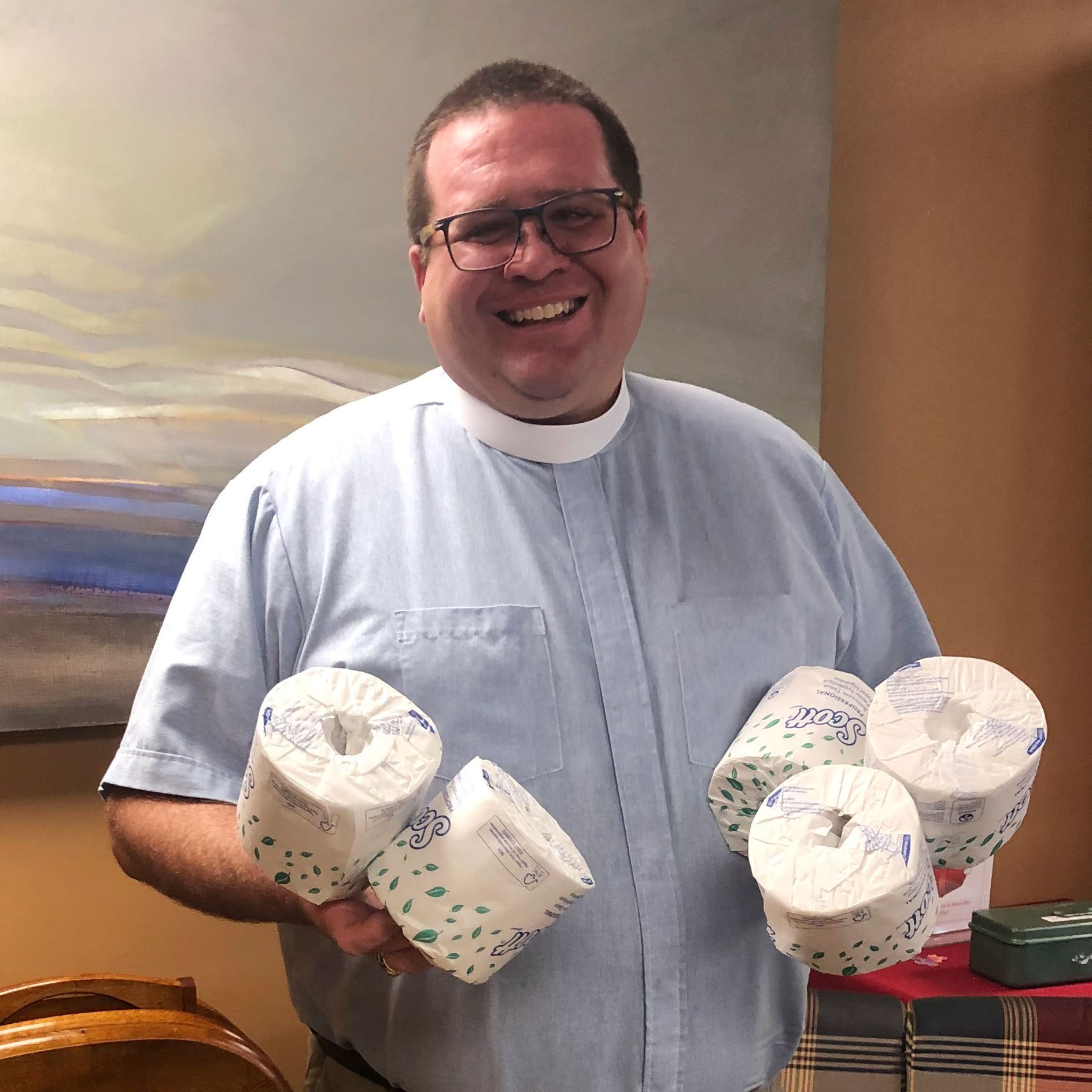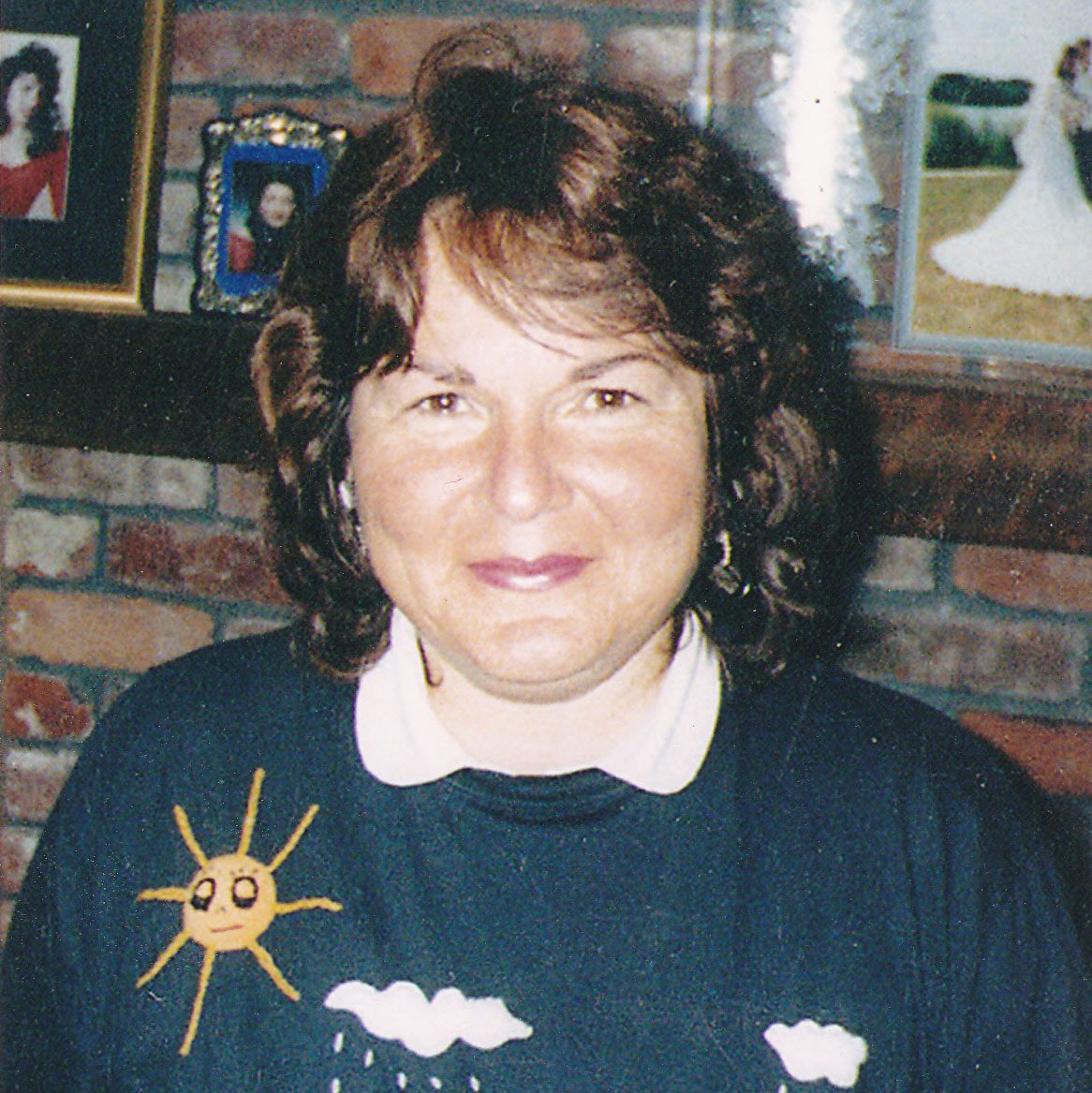The Nicest Place in Massachusetts: Springfield
NICEST PLACES IN AMERICA 2020 FINALIST
"The Ham Lady"
With salaries cut and Easter around the corner, an unlikely heroine made sure those who need a ham got one.
When the pandemic hit Springfield, a racially diverse, blue-collar city of about 150,000 located on the Connecticut River, people were losing their jobs and stimulus checks weren’t coming fast enough. The local Nextdoor community lit up with calls for help.
“People needed toilet paper, they needed food, they needed everything,” says Sandy Miliefsky, 76, who has lived in the city for 57 years with her husband, Arnie. Miliefsky spent decades as a social worker and also volunteering wherever she could, but in this case she didn’t know exactly how to help. To make matters worse, Easter was approaching, and residents only became more desperate to get what they needed to celebrate during quarantine.
That’s when Miliefsky got a call from a volunteer buddy, the Reverend Peter Swarr, the rector at St. Marks Episcopal church just outside of town, with whom she’d once planted a vegetable garden on church grounds to help feed refugees from Bhutan.

“I was given a bunch of hams,” Rev. Swarr says, explaining the purpose of his call. “But I only knew two people who needed them. Sandy was like, ‘Is that a Christian thing? You eat hams for Easter?’”
“I don’t know from hams. I am Jewish and know from briskets,” explains Miliefsky.
She did know from Nextdoor posts that there were many hungry people in Springfield. So before she went to bed that night, she posted that she had some hams to share. Did anybody want one? She woke up to a slew of e-mails from people who would love to have a ham for Easter dinner. She connected them to Rev. Swarr and he delivered them.
Now Miliefsky understood just how many hungry Springfield families there were, and she reached out to others in her volunteer network, collecting money to buy more hams and the people to deliver them. One day her friend, 85-year-old Dick Pond, showed up with a ham to donate, so she gave him an address.
“He went somewhere where he didn’t know the person and left the ham,” she says. “Then I saw online someone wrote, ‘Strange man dropped off ham at my front door,’ and then another wrote, ‘You don’t know the man and he left you a ham?’”
That’s how Miliefsky started to become known on Nextdoor and around town as “the ham lady,” a source of a mixture of pride and embarrassment for her. “I don’t want my rabbi to know I’m running around with hams!” she jokes.
When another Nextdoor poster received her ham, the delivery volunteer noticed her house had some broken windows. St. Marks found the money to have the windows repaired. And Miliefsky hired the woman’s son to do some yard work, then connected him with others who needed work done. The young man was booked out for weeks.

“All through Nextdoor,” she says. “Ninety-nine percent of the people who helped with this work didn’t know one another.”
Good comes when strangers connect with a common purpose—Miliefsky has been thinking about that a lot. She says that if she and her husband, who served on Navy submarines during the Cold War, were more mobile, they would have marched alongside Springfield’s peaceful protesters calling for an end of police brutality.
“My heart just breaks for what Black people have gone through,” she says. “One friend who has a son tells me that if she doesn’t hear from him for a day, her heart is in her stomach, she’s just so worried about him.I could just cry as a mother.”
Swarr agrees that Springfield’s response to the pandemic and Black Lives Matter movement are connected. “These challenges lead us to realize, we can’t pull this off on our own,” he says. “Our Black sisters and brothers have experienced racism for a long time, but the current situation has opened our eyes to this reality. We need each other. When we come together and respond, that’s when we see God’s grace.”

The Nomination
It all started with an E-mail from Father Peter Swarr, of St. Mark’s Episcopal Church of E. Longmeadow. He had 1 ham and some toilet paper to donate to someone in need. I had read requests on the next.door site from people looking for ham and toilet paper, right before Easter. I wrote on the site that we had a ham and some toilet paper. When I looked at my E-mail the following morning, I was shocked to find the page filled with requests from people who lost jobs, had no unemployment checks, and no money for a ham for Easter. I called my friends and fellow Lions members, and we all donated hams. I don’t know from hams, I am Jewish and know from briskets. So they taught me how you buy a ham, and about hocks and butts. I coordinated the deliveries of the hams to strangers, and they were delivered to the addresses I provided to my masked friends. People were writing to one another that they received a ham on their porch, and didn’t know who brought it. Meanwhile, Father Peter was going door to door delivering toilet paper. The more requests I received, the more Father Peter went all over the city on the Toilet Paper Caper. I called it that, as he fulfilled all requests, and people had no idea that this sweet man at their door was a Reverend from a neighborhood church. I called a man to check if he received the toilet paper, and could tell he was in tears, as he explained that his parents just moved here from another country, and were home alone while he was working. He was so grateful that his elderly parents received the toilet paper. One lady I delivered a ham to had a broken window in front, patched up – but I knew her family was cold, and they had young children. When I told Father Peter, he saw to it that the broken window was replaced. An elderly couple asked if someone had pancake mix and eggs. I had that in my kitchen, and was able to drive it over to them. One woman wrote in that she had groceries to donate to a family in need, but she couldn’t drive it over. A man named Felix, could drive, but needed hand sanitizer. I had the hand sanitizer, which I left in a bag tied to my mailbox, gave the address and Felix picked it up. I also put in a few brownies I baked to this nice delivery man. None of us know one another, but we have all agreed that we will meet at Nathan Bill Park down the street, when we can meet at a close distance, without masks. We plan to have a pot luck dinner at the park, and put the faces with the names of neighbors who did deliveries, donations, made and drove masks to other neighbors, took elders grocery shopping and bought groceries for shut-ins. And when we all meet in person, we are sure to invite the Reverend from E. Longmeadow, Father Peter, who is known for his tireless efforts in his daily deliveries, known as the Toilet Paper Caper.
I am disabled and am awaiting surgery on my disc. Until the pandemic, I was volunteering with my husband at Open Pantry, serving up to 180 meals per day, mostly to homeless and very poor people. We are both retired. We also take classes at Springfield College, and do fundraisers to help non-profits through our membership in the Lions Club. When things started getting bad for people right before Easter, I received a lot of E-mails asking for help, for groceries, ham, toilet paper, and basic necessities. I became involved with Father Peter Swarr, of St. Mark’s Episcopal Church in E. Longmeadow, who notified me that he had 1 ham and some toilet paper to distribute to someone in need.( I knew Father Peter from using his church hall to put on a fundraiser for the YWCA Domestic Violence Program last summer) And that began the Ham and Toilet Paper Caper. I got word out through next.door site, and was overwhelmed by the E-mails I received from people who are out of work, did not receive their unemployment nor stimulus checks and had no money for food, diapers, and basic necessities. People started writing in on the site that they would volunteer to take an elder grocery shopping, or go shopping for them, or do errands for folks who couldn’t get out. And I coordinated the efforts – matching volunteers with people in need, working with Father Peter to help all the folks who put in requests. Women I don’t know were making masks for people in the community who needed them, dropping them off at mailboxes. People began donating food to strangers, who needed food. One Lion’s friend has a daughter in New Jersey, who sent boxes of food to people in our neighborhood, who Father Peter and I identified. So people began helping strangers through the neighborhood site and continue to respond to their neighbors, with compassion, generosity and acts of loving kindness.
I only knew my next door neighbor and the woman across the street. Most people are working and the others are elderly and stay in their homes. The few people I know are kind and helpful. I had no idea that so many people in the E. Forest Park and Forest Park neighborhoods are so kind, helpful, generous and caring to others, until this pandemic starting taking place.
57038
What do you think of The Nicest Place in Massachusetts: Springfield?